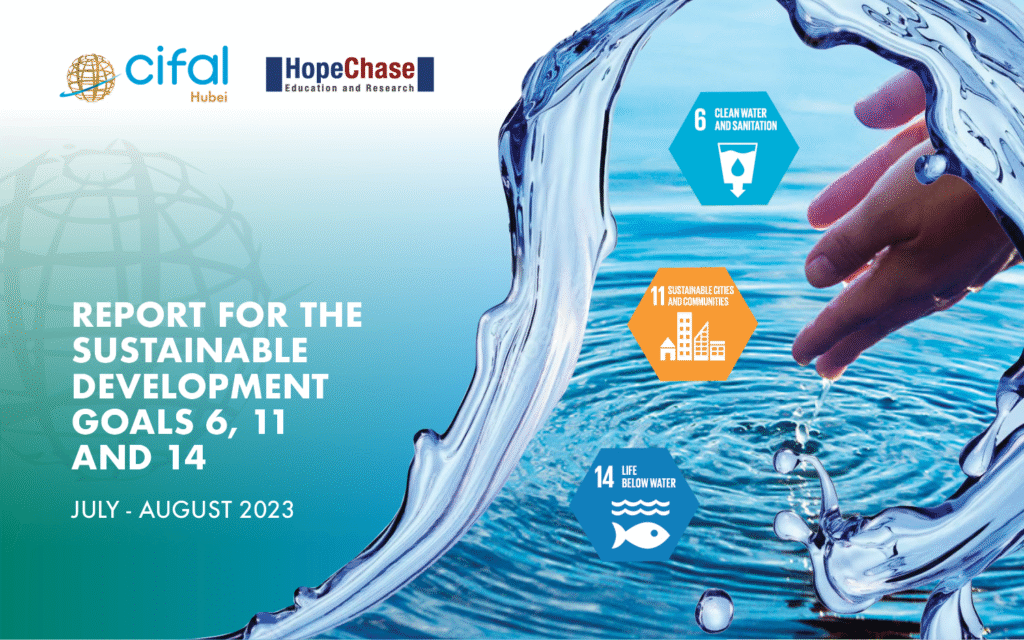
Clean Water Catalyst: Nurses Advancing SDG 6 for Healthier Communities
Introduction
People commonly associate the term “nurse” with hospital wards, medication visits, and providing emotional assistance to patients. The scope of nursing extends ahead of the obligation of care at the patient’s bedside; it incorporates the staging of public health, the education of the public, and the implementation of substantial change. Nursing’s contribution to the advancement of Sustainable Development Goal 6 (SDG 6): Clean Water and Sanitation is one of its most critical yet insufficiently valued aspects. Through their advocacy for this cause, nurses contribute an ultimate and important part to the prevention of disease, the promotion of well-being, and the undertaking of improved health outcomes in the future for entire communities.
In a world where 2.2 billion individuals lack access to safe drinking water and 3.5 billion live without adequate sanitation, nurses serve not merely as caretakers but as frontline protectors against unnecessary suffering (Arora & Mishra, 2022). Their daily interactions with patients and communities position them uniquely to spot gaps, educate on hygiene, and persuade for systemic improvements in clean water access and sanitation (Taminato et al., 2023).
Understanding the necessity of SDG 6
Public health and environmental sustainability need universal access to clean and sustainable water and sanitation. This necessitates global access to affordable, clean drinking water, particularly in underdeveloped regions. Water pollution may be mitigated and enhanced by more stringent legislation and advanced treatment technology to protect ecosystems and human health. Hygiene education and water conservation enable communities to use water carefully and prevent waste. These solutions may facilitate the provision of clean water and sufficient sanitation for everybody while safeguarding this vital resource for future generations.
Access to clean water and proper sanitation is a foundational pillar of public health. Contaminated water and inadequate cleanliness result in fatal Diseases—cholera, dysentery, typhoid, and severe diarrhea—all too familiar to nurses, particularly in underprivileged regions (Wang et al., 2022)
Why Nurses Are Essential to Achieving SDG 6
Front-line warrior of Infection Prevention
Nurses are at the forefront of infection prevention in hospitals, clinics, and communities. Handwashing, sterilization, and safe waste dumping are unremarkable activities that correspond with SDG 6. Nurses frequently attribute outbreaks to contaminated water or inadequate sanitation, featuring their essential role in prevention.
Educators for Enhanced Community Well-being
In addition to clinical care, nurses educate families on water purification, sanitation facility usage, and the prevention of waterborne diseases. Through maternal health consultations, educational initiatives, and community meetings, they cultivate practices that sustain lives and progress toward enduring well-being.
Advocates for improved Healthcare Facilities
Many clinics, particularly in remote regions, confront challenges such as the absence of running water, malfunctioning toilets, or a lack of sanitary supplies. Nurses comment on these deficiencies directly and can advocate for policy amendments, infrastructural augmentations, and financial support to ensure secure hospital settings for patients and their personnel.
First or Emergency Responders in Crises
In disasters—such as floods, conflicts, or disease outbreaks—access to clean water is essential for survival. Emergency team nurses establish hydration stations, provide hygiene kits, and mitigate epidemics, demonstrating that access to water is as vital as any medical intervention.
Nurses Face Obstacles
Nurses face several obstacles in promoting SDG 6, such as inadequate training in water and sanitation advocacy, insufficiently financed infrastructure in underprivileged areas, and cultural impediments, including mistrust towards hygiene initiatives. Moreover, several individuals operate in under-resourced clinics deficient in fundamental necessities like clean water, soap, and hand sanitizers, limiting their efforts.
Strategies for Progression
Nurses should get training in water, sanitation, and hygiene (WASH) to enable them to serve as community leaders effectively. Nurse-led efforts, such as school cleanliness programs and public awareness campaigns, must be encouraged, while their involvement in policymaking must be enhanced to use their frontline experience. Ensuring collaborations among governments, NGOs, and healthcare professionals would facilitate the closure of disparities in water and sanitation access.Conclusion
SDG 6 encompasses more than just infrastructure and purification systems; it relates to health, quality, and equity. Nurses, regarded as trustworthy caregivers and community leaders, possess the ability to represent this aim. Integrating clean water and sanitation into healthcare advocacy not only decreases illnesses but also minimizes their onset. Let us assist nurses in their endeavor to achieve a world where every person, everywhere, has access to the clean water and sanitation to which they are entitled
References
Arora, N. K., & Mishra, I. (2022). Sustainable development goal 6: global water security. Environmental Sustainability, 5(3), 271-275.
Taminato, M., Fernandes, H., & Barbosa, D. A. (2023). Nursing and the Sustainable Development Goals (SDGs): an essential commitment. In (Vol. 76, pp. e760601): SciELO Brasil.
Wang, M., Janssen, A. B., Bazin, J., Strokal, M., Ma, L., & Kroeze, C. (2022). Accounting for interactions between Sustainable Development Goals is essential for water pollution control in China. Nature Communications, 13(1), 730.
About the Auhtor
Zahid Hussain
Former Nurse Lecturer at Xcito College of Nursing, Chakdara, Lower Dir, KPK, Pakistan.
Currently accomplishing an MSc in Nursing (in process), Post RN BScN, and a Diploma in Cardiac Nursing.
Research interests: Cardiology and nursing roles, the impact of advanced technologies on cardiovascular health and disease prevention, advancements in nursing education, and healthcare promotion.
Professional Experience: More than 10 years of practicing and academic expertise in Cardiology, Emergency Medicine, and Pediatric Care.


Pingback: Sanitation for Hope: Transform Community Health in Pakistan 6